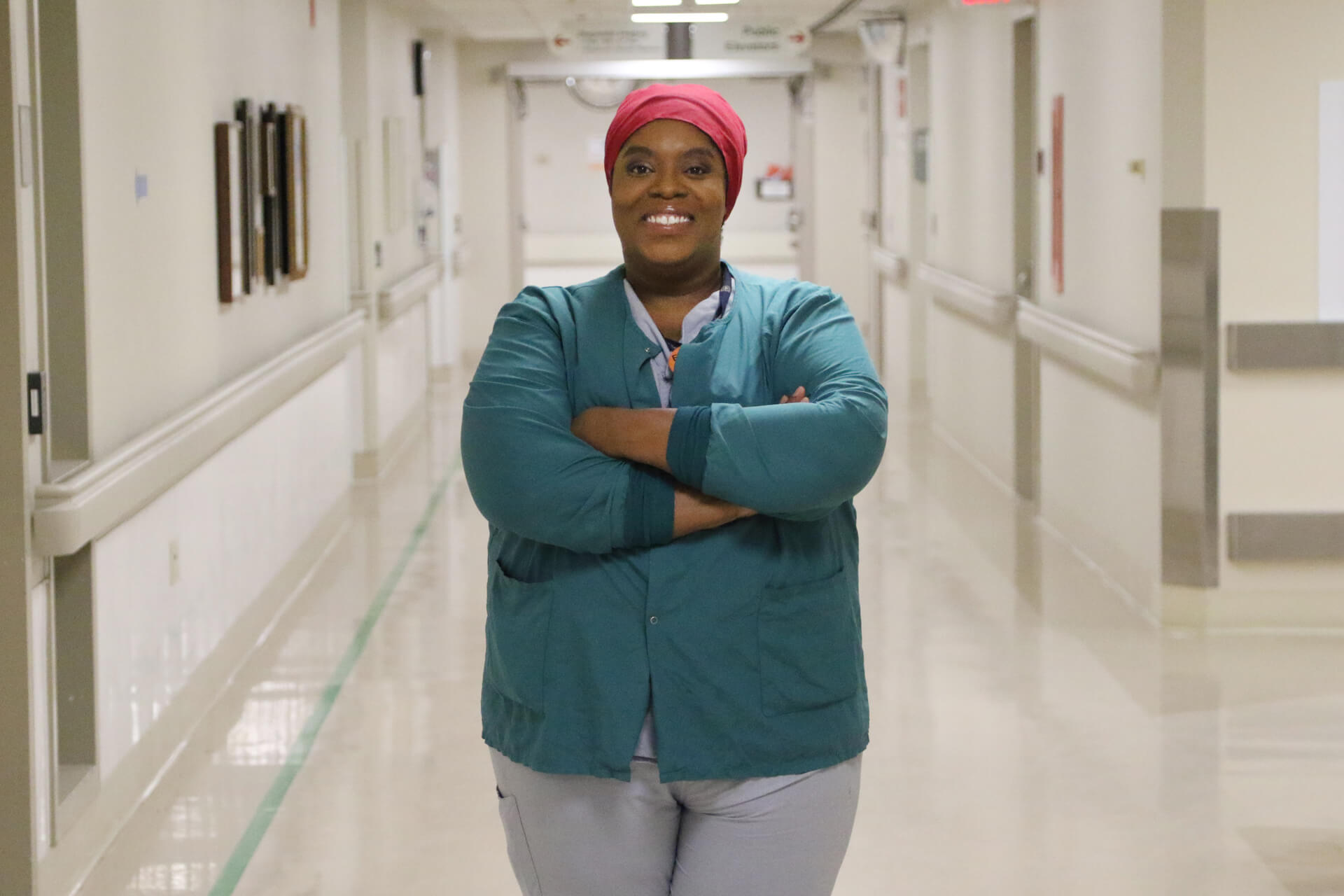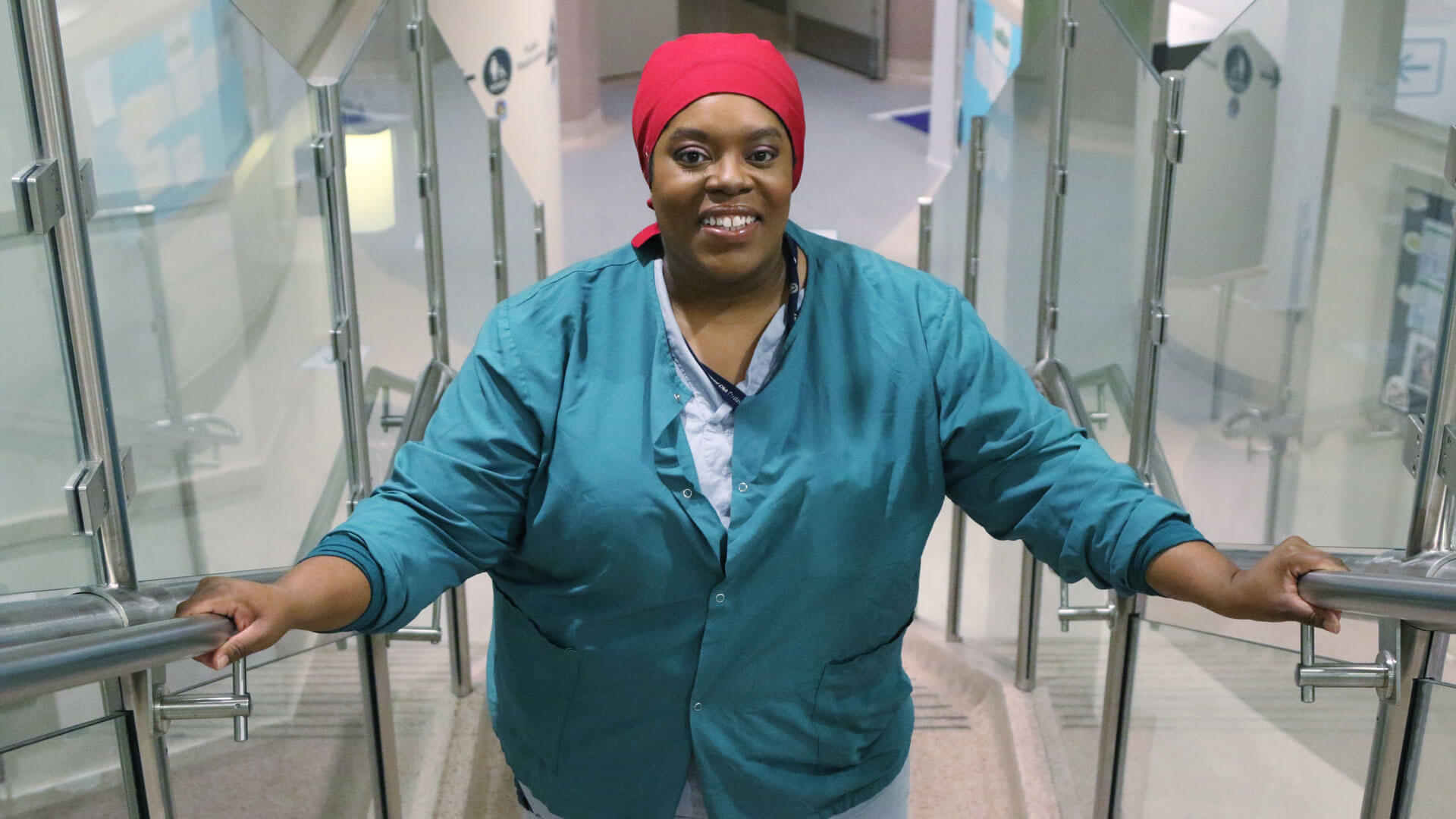Athabasca University nursing alum Kimberley Jones studies racism in health and education
Kimberley Jones (Master of Nursing '22) says she's a bit of a "weirdo" when it comes to school.
"I love learning and I love studying," explains Jones, an operating room nurse at Calgary's Peter Lougheed Centre. "I can't get enough of it."
It's not surprising, then, that about 6 years ago-several years into her nursing career-she decided to pursue a master's degree. Attending school full time and in person wasn't an option, so like thousands of other working Albertans with dreams of higher education, she turned to Athabasca University (AU).
Only AU allowed 'complete flexibility'
"It was pretty much the only program that allowed complete flexibility, and it was here in Alberta," Jones explains. "I needed to keep working and study at the same time, so for me, AU was a no-brainer."
Jones graduated with a Master of Nursing degree in 2022. Her studies helped upgrade her skills and knowledge, but more importantly, they allowed her to explore an issue she cares deeply about: equality and equity in the Canadian health-care system.
Jones, 35, says she has often encountered racism, both in her career and at nursing school, where she was one of only 3 Black students in a class of about 400. "I didn't feel like I was welcome sometimes," she explains. "I definitely felt on the outside."
Encountering racism in health care
When she began working as a nurse, she noticed that people of colour were often treated differently. Black patients sometimes did not receive the same level of consideration from health-care professionals. And very few doctors and nurses were Black.
"Some people thought I was a housekeeper when I first started working at the hospital-not that there's anything wrong with being a housekeeper, but that's not what I was."
Some people thought I was a housekeeper when I first started working at the hospital-not that there's anything wrong with being a housekeeper, but that's not what I was.

In her graduate studies, she wanted to explore issues of race. "I see a lot of issues in health care, and I see lots of problems in the education of nurses. I wanted to get an idea of how we can approach that, how we can improve things and try to make the nursing profession a bit more progressive and welcoming of others."
That goal came into sharper focus as she progressed through AU. She had begun her master's in a course-based program but switched to a thesis-based one to conduct research on the experience of Black nursing students in predominantly white institutions.
Black nurses report being stereotyped
What she found confirmed her own experiences: Black students reported fears of being stereotyped or seen as not fully capable, while at the same time feeling that academic expectations were lower for them than for white students.
"I'm glad that I found out I wasn't alone," Jones says. "But it was also heartbreaking."
The COVID-19 pandemic created such chaos at institutions across the country that she had to put her research on pause for several months.
I'm glad that I found out I wasn't alone. But it was also heartbreaking.
Jones has since compiled her research into an article she hopes to get published in a peer-reviewed journal. She has also presented her findings at nursing conferences, and she is considering pursuing a PhD to continue her thesis project.
"I just want to get the ball rolling on understanding what's happening for nursing students and maybe create some positive change," she says.
Education is for everyone
Jones gives Athabasca University a lot of credit for helping her along her path, both in her career and her academic and social interests.
For people who can't fit a rigid post-secondary program into their lives, AU offers an opportunity to learn and to make a difference, she says, helping those from diverse backgrounds or economic circumstances to more fully realize their potential.
Education isn't only for young people who have no other attachments-that's just not fair. There are brilliant people out there who just need a chance.
AU "just widens the reach of education," she says. "If you have a computer and you have the will and some time to set aside for yourself, you can do this.
"Education isn't only for young people who have no other attachments-that's just not fair. There are brilliant people out there who just need a chance."

Open for Alberta
Read more profiles of AU learners and grads in our Open for Alberta series.